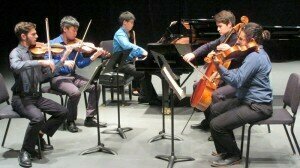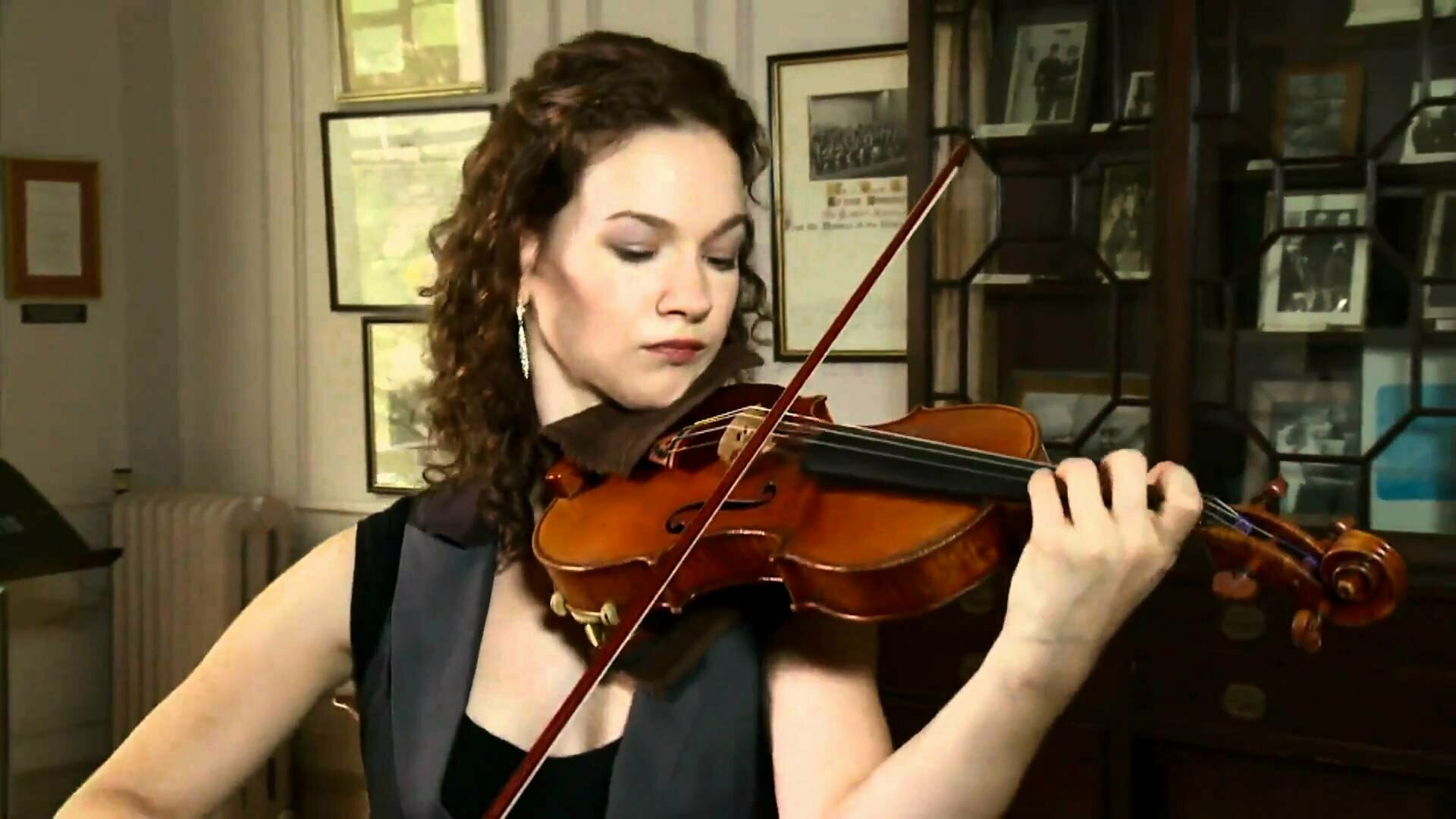
Eastern Music Festival, Greensboro NC
But summer festivals are intense. Novices may not know how to fit in, and often, we are in danger of taking on too much playing, or repertoire we are not ready for. We are eager to do anything to make a passage or performance happen, in fact, as much as we hate to admit it, we are sometimes willing to self-destruct, which can lead to a bad experience or worse, an injury resulting in weeks or months of recovery.
Sir Antonio Pappano and the Verbier Festival Orchestra
How can we reduce the possibility that this might happen to us? Here’s a survival guide.
1. Before you sign up for a festival or training program, find out the schedule and what might be expected. How many rehearsals are there each week? How many different programs? How many lessons? What pieces will you be learning or preparing? Are you up for it? If you think you can manage the schedule and repertoire, make certain to get the music ahead of time. Listen to the works so you know the tempos, the style, and how your part fits in with the other instruments. Become familiar with the ways artists have interpreted these pieces. Knowing the music before you get there will reduce the amount of individual practice time you’ll need on top of an already busy schedule. A bonus is that familiarity with the music will reduce tension in your body. Instead of sudden and jerky motions you’ll know what’s coming and your motions can be more fluid.
2. One month before the festival begins, increase your practice load gradually and in small increments.
3. Always warm up. Your muscles need oxygen. Run up and down some stairs, do jumping jacks, go swimming, or take a brisk walk. Get your blood pumping. Stretch your upper body by shrugging and rolling your shoulders, circling your hands and wrists, swinging your arms back and forth and over your head, squeezing your shoulder blades together, and reaching back with your arms to stretch your pectoral muscles. Then pick up your instrument beginning gradually: Not too high, not too low; not too fast, not too slow.

Aspen Music Festival
5. The stress or pressure of a festival might be greater than you are used to. You might be playing more. Reduce your practice load before the festival, and before performances; reduce the intensity with which you are playing, and take even more breaks.
6. Be flexible. Each musician will have a concept of the music. Be prepared to listen, to adjust, to try new ideas. In chamber music, if something isn’t going right choose your words carefully: “I think this is not together. Can we try it again?” rather than: “You are rushing here.” In an orchestral setting, listen and don’t talk. It’s important to try to blend your sound and to match your intonation with your stand-partner and colleagues, and to be prepared to play extra softly when your line is less important.
7. Be on time. This is respectful to your colleagues. When you are in your seat early enough you have an opportunity to warm up, go over any difficult spots in the music, and make sure you have enough room onstage. Adjust to others around you. Carry a sharpened pencil. In the orchestral setting, you and your stand-partner should decide who will write instructions or changes in the parts. Even audience members sitting close up should be aware that wearing strongly scented perfume or aftershave can cause another player to cough. Leave it at home.
8. Listeners and performers: sit with good posture. Your shoulders should be down and facing forward. Keep your torso erect and facing forward; keep your head up and in neutral, and while you are sitting, your thighs should descend from your hips, in other words your knees should be lower than your pelvis. Avoid low, molded and back-sloping chairs. Your weight needs to be forward and on your feet so you can maintain a lumbar curve in your back. There are many wedge seat cushions and lumbar cushions on the market, which can help. These are essential items to bring along with you for buses and airplanes, as well as for rehearsal and performance.
9. Pack a towel or cloth to round out the edge of the seat of an unpadded chair so it won’t cut off circulation in your legs. Bring along a tennis ball or a one to two-inch super ball. These come in handy to self-massage knots that may occur in your neck or back. If you’ll be playing outdoors pack a loose-fitting jacket or sweater, a rain poncho, sunglasses, insect repellant, a water spray bottle, and a cloth to protect your instrument from the elements.
10. Don’t forget your ear plugs—one of the most important things for your long-term survival as a musician and/or music-lover. Protect yourself from blasts of sound—you may have to walk by construction or lawn care, you might have to sit in front of the piccolo, trumpet, or speakers, you might rehearse a contemporary work that has extra percussion and constant cymbal crashes. The investment in earplugs is life-saving. (See the links below.)
Musician’s earplugs
Cheaper and effective disposable earplugs: Howard Leight Matrix earplugs
Capuçon, Kavakos, Wang – Special event: Rehearsal (Brahms Trio): Verbier Festival 2016

